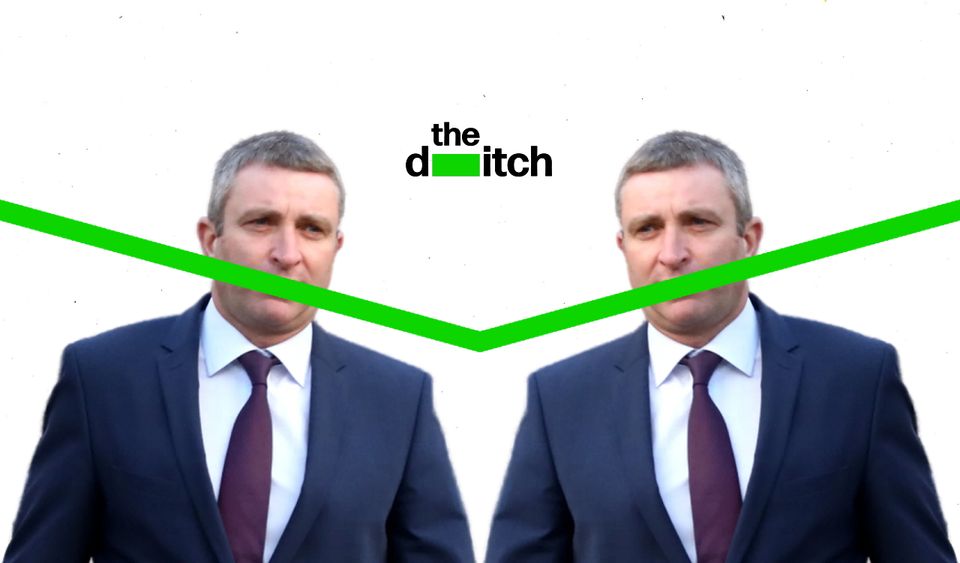What are the allegations against Niall Collins?
In December 2006 a solicitor acting on behalf of Eimear O’Connor (Niall Collins's wife since April 2000) wrote to Limerick County Council and asked to purchase land the council owned in Patrickswell. On 15 January 2007 Niall Collins was one of seven county councillors who voted to approve the disposal of the land. According to the meeting minutes he did not declare an interest or withdraw from discussion of the matter.
Why is this a problem?
Under section 177 of the Local Government Act where a “resolution, motion, question or other matter is proposed” at a council meeting, a councillor “shall take no part in the discussion or consideration of the matter and shall refrain from voting in relation to it”, if he or she has “actual knowledge that… a connected person has a pecuniary or other beneficial interest in, or which is material to, the matter”.
Section 177 of the act also requires a councillor to “disclose the nature of his or her interest, or the fact of a connected person’s interest at the meeting, and before discussion or consideration of the matter commences… withdraw from the meeting for so long as the matter is being discussed or considered”.
Both the “disclosure” of any potential pecuniary or beneficial interest – on the part of the councillor and/connected person – and “withdrawal” from the meeting must be “recorded in the minutes” under section 177.
What is a “connected person”?
Under the Local Government Act 2001 a connected person includes a spouse.
What is a beneficial interest?
Under the Local Government Act 2001 “a person shall also be deemed to have a beneficial interest which has to be disclosed under this Part if he or she has actual knowledge that he or she or a connected person has a declarable interest (within the meaning of section 175)”.
Under Section 175 of the act a declarable interest includes “any business of dealing in or developing land”, as well as “any other remunerated trade, profession, employment, vocation, or other occupation”.
The issue of beneficial interests under the act arose in the 2009 High Court case De Burca v Wicklow County Manager. In that case the court said “in order for a declarable interest to become elevated to the status of a beneficial interest… the tribunal of fact must be of the opinion that the relationship or connection being considered would give rise to a reasonable apprehension on the part of the public that the elected representative in question was not acting solely in the public interest”.
Failure to comply with section 177 of the act is an indictable criminal offence.
What is the definition of a pecuniary interest?
The act does not define “pecuniary interest” however in other jurisdictions it has been defined as an interest that a person has in a matter because of a reasonable likelihood or expectation of appreciable financial gain or loss.
What is Niall Collins’s position on whether he or his wife had an interest in the matter?
In a statement late last night, Collins said, “Neither I nor my wife had any pecuniary or beneficial interest in that property.”
Did Niall Collins commit a criminal offence?
Only a court can decide if Niall Collins committed an offence under the act. The matter would first have to be investigated by An Garda Síochána and a prosecution could only happen with the consent of the Director of Public Prosecutions.
Is there any other potential wrongdoing?
The code of conduct for councillors puts a general onus on councillors to avoid any conflicts of interest and act with integrity.
Did Niall Collins breach the code of conduct for councillors?
Only SIPO can determine if Collins breached the code of conduct for councillors.


